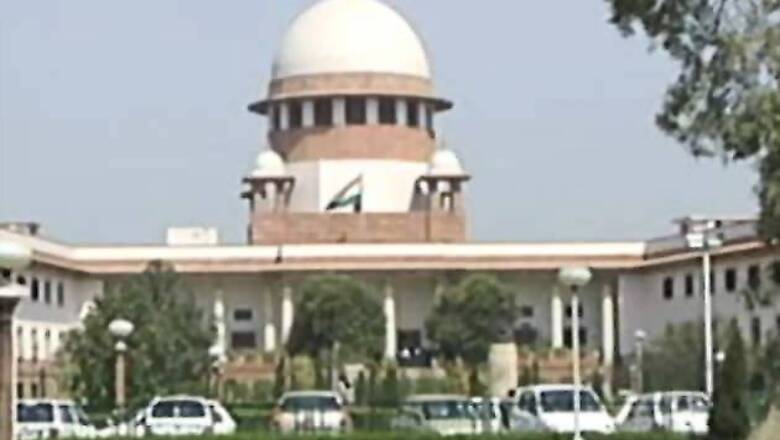
views
New Delhi: The Supreme Court on Tuesday began the final hearing on the petitions challenging the constitutional validity of Aadhaar card with those opposing the mega project saying it was not backed by any statute and compromises with national security.
Further, a three-judge bench headed by Justice BS Chauhan was also told that the project not only violates the right to privacy but the "biometrics", which is the foundation of the project, is an unreliable and untested technology and public funds are being channeled to private enterprises without sufficient validation.
"The project is arbitrary and illegal as it allows private dominion over biometrics without governmental control thereby compromising personal security and national security," senior advocate Shyam Divan submitted before the bench, also comprising justices J Chelameswar and MY Eqbal, which wanted to know the difference between the National Identity Number and Aadhaar.
The final hearing began in the backdrop of the apex court's interim order which had said Aadhaar card be not made mandatory for people for availing any government services and nobody should be deprived of any such facilities for want of the card.
The Centre, Unique Identification Authority of India (UIDAI) and three oil PSUs -- IOCL, BPCL and HPCL -- had later on moved the apex court seeking modification of its earlier order that Aadhaar card is not mandatory and no person should suffer for want of it in getting the benefits of government schemes.
The petitioners, including Justice K Puttaswamy; former high court judge and Major General SG Vombatkere, who retired as Additional Director General, Discipline & Vigilance in Army HQ; also sought to restrain the Centre, Planning Commission and the UIDAI from issuing Aadhaar cards by way of an executive order of January 28, 2009.
Divan began the arguments by saying that "there is no statute to back the project" and even if there were one, the statute would be violative of Articles 14 and 21 of the Constitution as the project enables surveillance of individuals and impinges upon right to human dignity. Maintaining that whenever state seeks to impinge upon fundamental rights, its action must be backed by statute and not mere executive fiat, the senior advocate said, "Here, the action under the impugned project of collecting personal biometric information without statutory backing is ultra vires even where an individual voluntarily agrees to part with biometric information."
He contended that the project would not stand the test of Constitution as there is no statutory guidance on who and how the biometric information has to be collected. The advocate said the task has been given to some private entities without sufficient validation. Further, there was no clarity on storage, usage and protection of data, he said, adding "the project is also ultra vires because under the constitutional scheme any action of the state that could potentially impinge on an individual's freedom must be backed by statute."
The petitioners said that the procedure adopted by UIDAI in collecting data was also violative of Article 21 as individuals are not told about crucial aspects such as potential misuse of the information, the absence of any statutory protection, commercial value of the information and that private parties are involved in collecting biometric information without safeguards. The bench, which is hearing a batch of petitions challenging the scheme, had earlier said the stand of state governments needs to be considered while adjudicating the case on Aadhaar card.




















Comments
0 comment